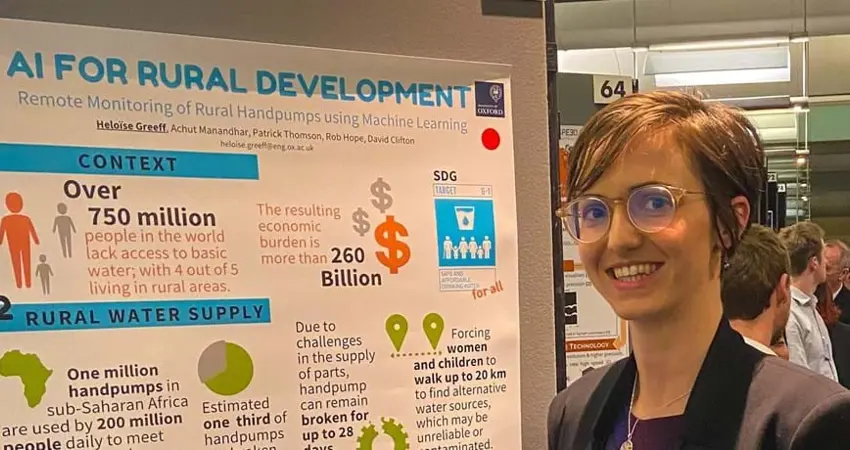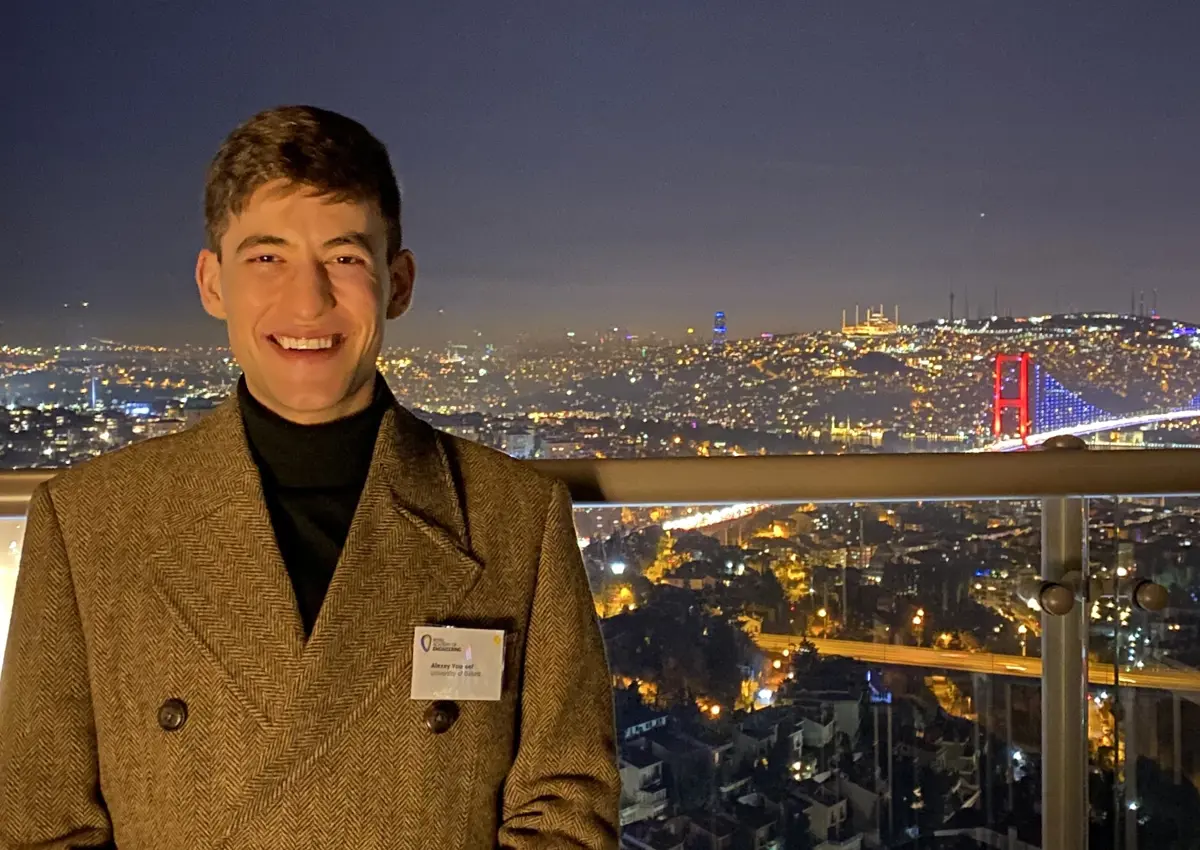20 Jul 2020
DPhil students working in AI awarded funding to further their research
Congratulations to Heloise Greeff and Alexey Youssef who both work on AI for low- and middle-income countries

Heloise Greeff presenting at the SET Awards, UK Houses of Parliament
Students from the Computational Health Informatics Group working on artificial intelligence (AI) for low- and middle-income countries (LMICs) have recently been awarded fellowships and funding to continue their work.
DPhil student Heloise Greeff has had several recent successes. Firstly, she was invited to the Science, Engineering, and Technology (SET) awards at the UK Houses of Parliament in early March, which recognises the work of outstanding early-career researchers across the UK. Secondly, Heloise has also been appointed to a prestigious Junior Research Fellowship at Linacre College for her work on AI for low- and middle-income countries (LMICs).
Finally, Heloise has been awarded a trio of grants in AI for patient monitoring in LMICs: the UK Global Challenges Research Fund is supporting a new project that she is leading in India for low-cost wearable sensing; the Balliol Interdisciplinary Institute is supporting a range of workshops to be held by Heloise in India; the PITCH-IN initiative is funding Heloise to look at IoT-related [Internet of Things] sensing, linking the Emergency Department of the Oxford University Hospitals to collaborators in Vietnam.
Heloise explains,
“AI offers a great opportunity to address some of the most pressing needs of our times,"
"especially those related to SDGs [Sustainable Development Goals] in low- and middle-income countries. It is amazing to celebrate the success of our work to date with the health-monitoring of rural water pumps in Kenya and patient monitoring in Vietnam as well as grants that enable new projects and collaborations in India. I hope that our continued success in this area may encourage more people from the field to work on the complex, ‘messy’ problems in LMICs."

Alexey Youssef, DPhil student and Rhodes scholar
Likewise, many congratulations go to Alexey Youssef, Rhodes scholar and DPhil student, who has been awarded RAEng "Frontiers of Development" funding to support his work on AI for medicine in LMICs. Alexey tells us more, “I will work with collaborators from the University of Colombo in Sri Lanka and from the World Health Organisation in Syria to improve upon the existing open-source EHR [Electronic Health Records] solutions. We will develop modules and customisations for Bahmni™ enterprise open-source EHR system with the aim of reducing barriers to implementation in limited resource settings. One of the goals of the project is to produce an Arabic version of Bahmni™, which would make the system available to a geography with over 300mn individuals. The overall aim is to encourage the utilisation of Open Source EHR systems to build national EHR frameworks that will enable the effective utlisation of healthcare data for research, innovation, and public health purposes across Low- and Middle-Income Countries”
“The customisations developed during the project will be piloted within a WHO project to rollout Bahmni™ in two Syrian public hospitals as part of a larger project to rollout a national EHR system in the public health sector in Syria.”




